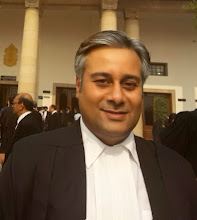Analysis of Divorce Under the Hindu Marriage Act
Introduction
The Hindu Marriage Act (HMA) of 1955 governs marriages and divorces among Hindus, Buddhists, Jains, and Sikhs in India.
Grounds for Divorce under Hindu Marriage Act 1955
The HMA outlines several grounds on which a divorce can be obtained.
- Adultery: Voluntary sexual intercourse by one spouse with a person other than their spouse.
- Cruelty: Conduct that causes physical or mental pain or suffering to the other spouse.
- Desertion: Abandonment of the matrimonial home by one spouse without reasonable cause.
- Conversion to Another Religion: Conversion of one spouse to a religion other than Hinduism, Buddhism, Jainism, or Sikhism.
- Unsound Mind: If one spouse is incurably of unsound mind or suffers from a mental disorder that makes it unreasonable for the other spouse to live with them.
- Venereal Disease: If one spouse suffers from a venereal disease.
- Renunciation of the World: If one spouse renounces the world and abandons all worldly ties.
Mutual Consent Divorce :
- Mutual Consent: Both spouses can jointly file for divorce under section 13 B of Hindu Marriage Act on the ground of mutual consent if they have lived separately for at least one year and agree to dissolve the marriage by mutual consent.
Procedure for Obtaining a Divorce
The procedure for obtaining a divorce under the HMA involves several steps:
- Petition Filing: A petition for divorce must be filed in the family court by either or both spouses.
The petition must specify the grounds for divorce and provide supporting evidence. - Notice to the Other Party: The court will issue a notice to the other spouse, requiring them to respond to the petition within a specified period.
- Mediation: In some cases, the court may refer the parties to mediation to explore the possibility of reconciliation.
- Trial: If mediation fails, the case will proceed to trial, where evidence will be presented and arguments heard.
- Decree of Divorce: If the court finds in favor of the petitioner, it will grant a decree of divorce.
Challenges in Obtaining a Divorce
Obtaining a divorce under the HMA can be a complex and challenging process. Some of the common challenges faced by individuals seeking divorce include:
- Lack of Awareness: Many individuals may not be aware of their rights and the procedures involved in obtaining a divorce.
- Financial Constraints: The legal costs associated with divorce can be significant, making it difficult for individuals with limited financial resources.
- Social Stigma: Divorce can still carry a social stigma in India, leading to emotional distress and pressure on individuals to maintain their marriages.
- Custody Disputes: When children are involved, custody disputes can be emotionally draining and time-consuming.
- Property Division: Dividing property equitably can be a complex issue, particularly in cases where there are significant assets.
Conclusion
The Hindu Marriage Act provides a legal framework for divorce among Hindus, Buddhists, Jains, and Sikhs in India. While the Act has undergone some changes over the years, it still faces challenges in adapting to the evolving needs of modern society.
